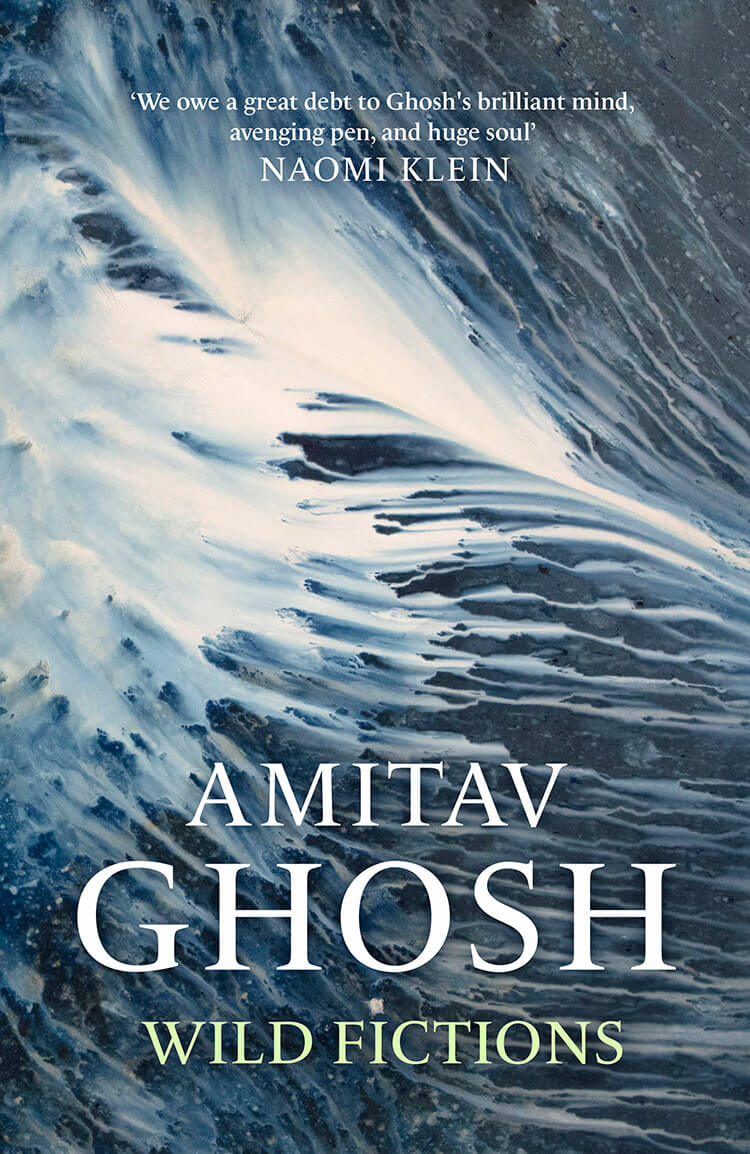
WILD FICTIONS
Wild Fictions brings together Amitav Ghosh’s extraordinary writing on the subjects that have obsessed him over the last twenty-five years: literature and language; climate change and the environment; human lives, travel, and discoveries. The spaces that we inhabit, and the way in which we occupy them, is a constant thread throughout this striking and expansive collection.
From the significance of the commodification of the clove, the diversity of the mangrove forests in West Bengal and the radical fluidity of multilingualism, Wild Fictions is a powerful refutation of imperial violence, a fascinating exploration of the fictions we weave to absorb history, and a reminder of the importance of empathy.
With the combination of moral passion, intellectual curiosity and literary elegance that defines his writing, Amitav Ghosh makes us understand the world in new, and urgent, ways. Together, the pieces within Wild Fictions chart a course that allow us to heal our relationships and restore a delicate balance with the volatile landscapes to which we all belong.
Urgent, beautiful and far-reaching . . . it should be essential reading’ TLS on Nutmeg’s Curse: Parables for a Planet in Crisis
He has surpassed many historians in his ability to synthesise a wealth of research with remarkable intellectual clarity’ The Times on Smoke and Ashes
Consistently stimulating’ Guardian on The Great Derangement: Climate Change and the Unthinkable
AMITAV GHOSH was born in Calcutta, and grew up in India, Bangladesh and Sri Lanka; he studied in Delhi, Oxford and Alexandria. He is the author of several acclaimed works of fiction and non-fiction including the Booker-shortlisted Sea of Poppies, the first novel in the Ibis trilogy, The Glass Palace and The Hungry Tide. His non-fiction writing includes The Great Derangement, The Nutmeg’s Curse and Smoke and Ashes: Opium’s Hidden Histories, which was shortlisted for the Cundill History Prize.
Amitav Ghosh’s work has been translated into more than thirty languages. He was a finalist of the Man Booker International Prize and was the first English-language writer to be the recipient of the Jnanpith Award, India’s highest literary honour. In 2024 Amitav Ghosh was awarded the Erasmus Prize.

